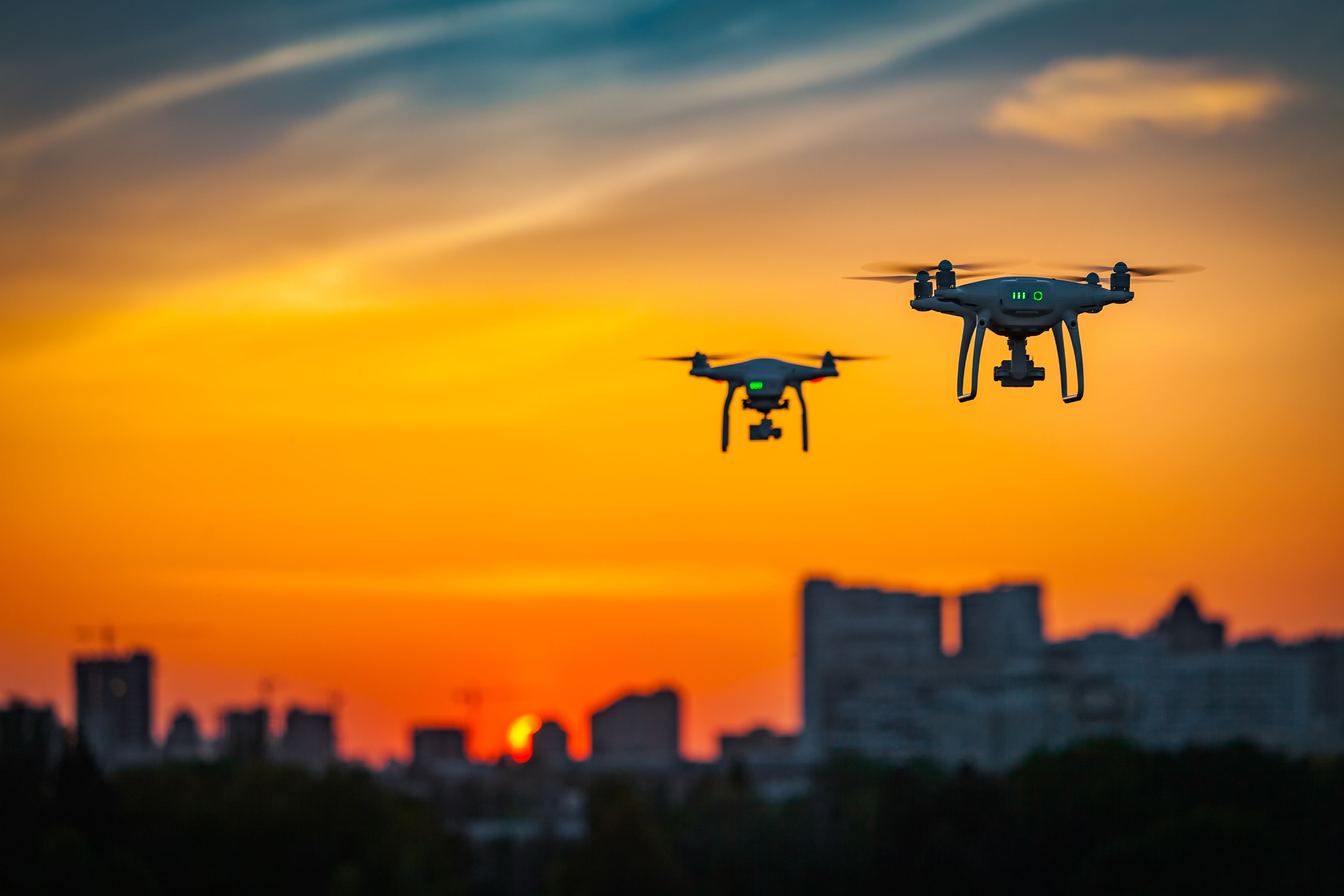
Cybercriminals use drones to steal information
by hacking the device through various methods. Is there anything
cybercriminals can't use to break into the devices of businesses and
individuals? Well, it would suffice to say a non-electronic object, but just
the opposite abounds in our lives. We are making more and more use of
electronic devices, both for work and for leisure; in many cases, those devices
are common. One of them, which has gained a lot of fame in recent years
among children and adults, is the DRONE. Drones have become a work tool thanks
to their capabilities, which have drawn the attention of a very dangerous
sector, that of cybercriminals. They have become a weapon that they now use to
carry out cyber attacks. Drones are another option that cybercriminals use to
steal information.
Now, what are they capable of doing? Depending on the level of the
cybercriminal, cyberattacks can be carried out on companies or institutions,
although they are not the only ones. They can also be used to cyberattack
ordinary users, specifically to get hold of their data or money, among other
options. As if this were not enough, peripherals can be added to these devices
to improve their specifications: thermal sensors, microphones or cameras in the
case of not come as standard. Cybercriminals, knowing their vulnerabilities,
easily hack them and publish how to do it on the networks. Although there are
indeed several methods to achieve this, the four most used are Cyber Take-Over,
by inhibiting its radio frequency, GPS spoofing and through SkyJack technology,
which uses hardware (a Raspberry Pi) and specific software. All of them are
easily accessible and achieve satisfactory results.
We will briefly explain what each method consists of. We start with Cyber
Take-Over, which is using a packet analyzer to hack the communication signal
between the drone and the operator. As it is not encrypted, it is done in a
very simple way and allows you to take full control of the device and the
system. The second method, inhibition of its radio frequency, consists of
altering the communication between the drone and its operator so that the
devices lose the video, telemetry or even GPS signal. About the GPS spoofing
method, say that software is used to supplant the drone's GPS signal and thus
send it to false coordinates and thus take control.
The fourth method, SkyJack, which allows hacking multiple drones with a single
drone, is to use a Raspberry Pi and the "SkyJack" app to listen to
and monitor other types of drones and thus hack them. As you can see, there are
several options and all of them are perfectly valid to gain control of the
drone or to use your own for illegal activities. Drone hacking is yet another
proof of the capabilities of cybercriminals to take advantage of any electronic
device. Perhaps this will serve, in the not-too-distant future, so that drones
have better security measures. It is a very widespread object, which can be
accessed even by children.
DOUBLE VERIFICATION -
MANDATORY
From 1st October 2022 - 2 Factor Authentication (2FA) will be mandatory for all
BAT users to be compliant with our high security standards
Alvaro Gonzalez Cyber security expert for BAT